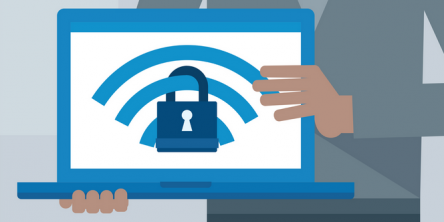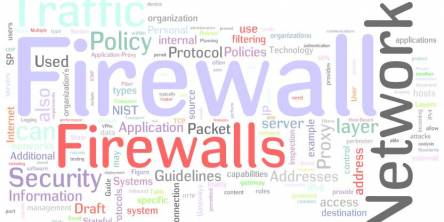5 Questions to Ask Yourself Before Choosing Single Sign-On solution
Most of the businesses protect their perimeter with more than one firewall, and some also provide an additional layer of protection within their network, including anti-virus, email filtering, intrusion detection, and much more.
There is no doubt in that this traditional layers add security to systems but none of them provide a golden bullet. Breaches are still very common. Cyber attackers will get inside of the network by breaking the protection perimeter.
Once the attackers get success in entering your network, they will get valid credentials or they create new credentials and access users private resources as long they get the things (the reason for their presence there). So, do you have any plans to protect yourself from cyber attacks, apart from antivirus or other traditional methods?
This is exactly where single sign-on solution fits in the scenario because the key element of cyber attacks is the password. The solution reduces the password count to one and permits users to access all the websites that are protected with it using one password.
Although the single sign-on solution is a great method but it doesn’t mean every business needs it. In this article, I am going to mention some critical questions that you should ask yourself before going to implement the solution.
What level of security your business needs?
This is the first question in my list that you need to ask yourself. It’s cool that your business needs web authentication service but do you really think you need a single sign-on solution? The level of security plays a major role here. The security level is different for all businesses, know your level and then decide whether you need the solution or not.
What is your long-term goal?
Most of the decisions of the businesses are made keeping long-term goals in mind. For example, if you are planning to move your business (business with multiple websites and applications) completely on the cloud, you don’t want to manage identities and credentials locally and move them to the cloud then you must go with SSO. It is a great alternative here.
What is the exact SSO solution you need?
This is also an important question. There are many types of SSO solution. Web SSO, ESSO, Federated SSO, etc. are some types. The role and function of each SSO are different. So, depending upon your requirement you need to choose the one that best suits your business.
For example, if you want your employees to get access to different websites of your business, enterprise SSO is best for you. And if you have a business where your employees or users need to authenticate multiple websites but of different domains then federated SSO is best for you. So, depending on the need choose your solution.
Do you want to implement new hardware or you want to use a service?
Implementing new hardware and managing them is costlier than opting for a service. If you have a big company and have many users then I suggest you go with the service providers and if you have limited users, go with internal hardware systems.
Do you need multi-factor authentication?
Do your business need an additional layer of security measures beyond standard SSO authentication solution, a multi-factor authentication is a good option.
With multi-factor authentication, users will also need extra factors along with their password during authentication. The other factors could be a security question, a unique pin or something which proves who you are like biometric authentication.
But go with the solution only if you have highly confidential data otherwise don’t waste your money.
The single sign-on solution improves user experience by reducing the number of passwords. It helps businesses drive first-party data and single customer view. In short, the solution comes with lots of benefits but you need to implement it only if you know the perfect answers to the mentioned questions.
Similar Articles
Learning how to avoid being in danger on the Internet is important. Online predators and identity thieves have been a problem since Who created the Internet many years ago.
Senior citizens around the world constantly encounter elder fraud and there are times when it goes unnoticed. Although seniors are not the only ones who are swindled, they are an appealing target for scammers for a variety of reasons
With the rapid growth of digital transformation and communication, various issues related to information security are also rapidly increasing and gaining importance. The messages and information that are shared publicly through accessible computer networks should be kept confidential and also protected against any manipulation.
Data security has become a requirement for almost every enterprise in the modern era, no matter its size. Most businesses in the digital world rely on transactions and data storage to perform most of their operations. Data usage has increased the efficiency and profitability of companies.
Cybersecurity is now an integral as well as a crucial aspect of running a business from any niche. If you think that the knowledge and expertise of Cybersecurity is required for only specific business domains, then it’s time for a revelation.
Is there a need to protect the data? Yes, it is. Hackers use different techniques to hack the data of your entrepreneur or organization & choose to misuse or demand payment for the data or information that has got hack.
Many small and medium-sized businesses are witnessing an increased threat from cybercriminals who attempt to intrude into computer infrastructure networks for financial gain or identity theft. The U.S. Congressional Small Business Committee reported that 71 percent of cyber attacks were directed at small business enterprises.
Internet World is doomed with hackers, blackhats and spamming bots which are constantly evolving according to time. No place on internet is a safe place to start a conversation or share data.




3db5.jpg)



